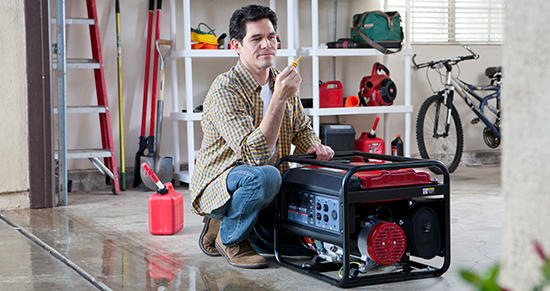 During a Public Safety Power Shutoff (PSPS), a backup generator can be an valuable thing to have when the power goes out.
During a Public Safety Power Shutoff (PSPS), a backup generator can be an valuable thing to have when the power goes out.
Generator basics
Backup electric generators are not connected to SDG&E's power grid. So, if there is a power outage, a backup generator can provide the energy you need to keep the lights on, keep appliances running and power essential equipment or electronic devices.
There are two types of residential generators:
- Portable Generators - These are designed to provide temporary power for basic needs.
- Permanent Standby Generators - These are generally bigger and better equipped to power larger structures, such as an entire home. These generators require professional installation from a licensed electrician.
Backup generators aren't for everyone. They can be loud and costly, and require regular maintenance. They can also be a safety hazard if used improperly. Generators are great options for residents that may be dependent on electricity to operate medical devices, like breathing machines, or require medicines to be refrigerated. Consider your needs before deciding whether a generator makes sense for your household.
Generator Safety
If you decide that a generator is right for your household. Please make sure to follow basic safety rules when operating and storing your generator. You can find a full list of safety tips on our website and details on how to choose the generator to meet your needs.